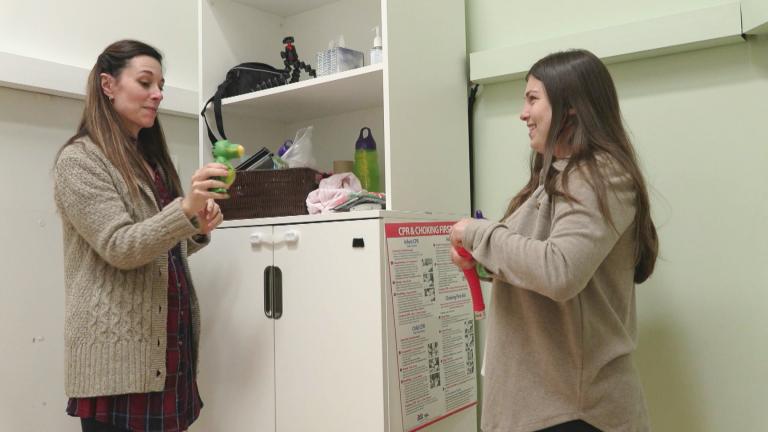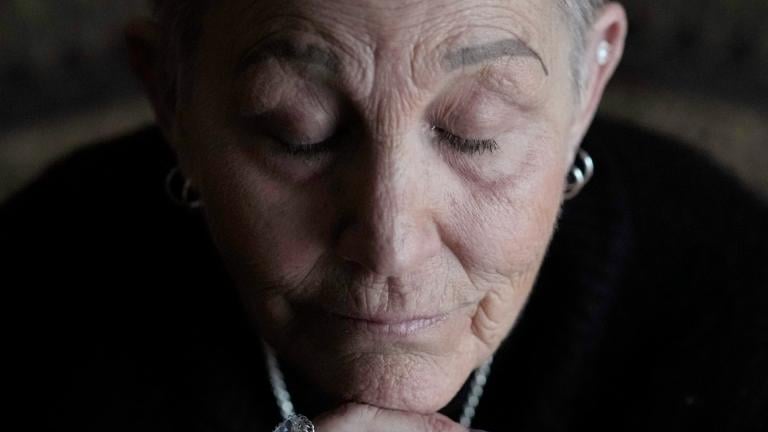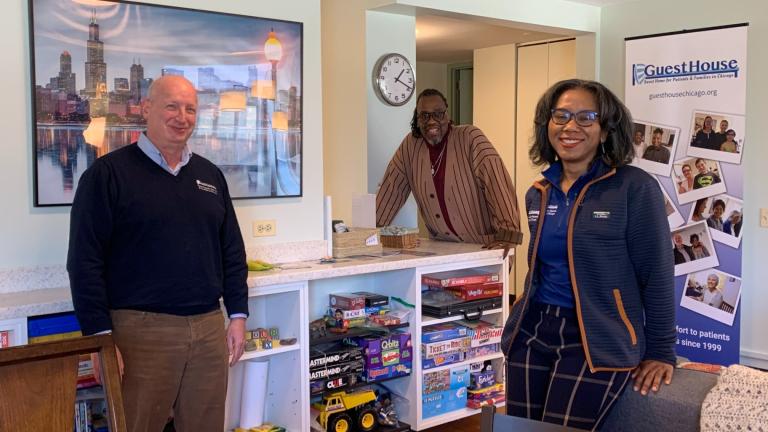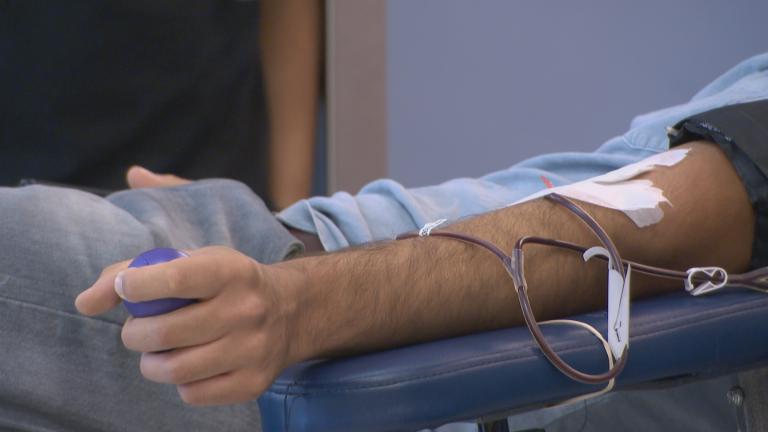When Chicago Fire Department paramedics Margaret Piwowar and Lauren O’Connor come to Denise Jackson’s home, their visit lands somewhere between a health care house call and a check-in with a friend.
“Paramedics, inherently we’re detectives,” said Piwowar. “We walk into a home, we see things that are disconnected to how someone is managing their care at home.”
They said they’re looking for clues that tell them what kind of challenges their patients might encounter day to day while recovering from a medical emergency or hospitalization.
“Do they have their medications ready to go? Do they have them in a place that they even know where they are?” O’Connor said. “Do they know how to take them?”
Last year, a COVID-19 infection devastated Jackson’s lungs and left her bedridden. She said she was caught in a cycle of emergencies and hospitalizations for her condition.
“Nobody had no answers,” Jackson said. “So pretty much I just laid in the bed and waited for an answer.”
That changed when Jackson became a participant in the Medical Home Network Paramedic Partnership, a pilot program that launched in October 2022. The pilot connects Chicago Fire Department paramedics with people who need help managing chronic conditions at home.
“The two ladies came to the door, and they came in with smiles and they were so excited, they made me excited,” Jackson said. “They didn’t come in like nurses or anything, they came in like cheerleaders.”
Piwowar and O’Connor coordinated Jackson’s care with her doctors, helped her manage her medications and even researched exercises to strengthen her lungs so that she could return to singing in church.
“The whole time that I’ve been in this program, I have not been back in the hospital,” Jackson said. “I am enjoying life again.”
Chicago Fire Department district chief of special projects Jonathan Zaentz said people with chronic conditions often find themselves trapped in a self-perpetuating emergency room cycle that can strain CFD resources. That cycle of emergency care and hospitalization is also expensive.
“Fire Department ambulances and the engines and the paramedics on those trucks and other vehicles respond every day throughout the day to 911 emergencies,” Zaentz said. “Many of these emergencies are the direct result of chronic health care conditions that have caused people to get to a point where their only recourse is to dial 911 and go to an emergency room.”
Medical Home Network leadership said paramedics are uniquely positioned to interrupt that cycle — if they’re given the right tools.
“They’re not only comfortable in the home environment, but they’re also comfortable in getting things done,” said MHN medical director Stephen Stabile. “They really assess and say, what are some very concrete action steps that we, as this broad care team, can take to really serve the patient better?”
“They were finding so many things like broken wheelchairs and medications that needed to be refilled that as we began the conversation, we understood that what we were looking for, as well, was someone to actually work with our patients, and it just all came together,” said MHN vice president for clinical integration and innovation Tina Spector.
Participant Rosa Gonzalez said in addition to providing the information she needed to recover from hospitalization for a heart condition, O’Connor and Piwowar also provided the support and encouragement she needed to continue proactively managing her health.
“When I went to the hospital, my heart was working only 10%, and I had to become strong,” Gonzalez said. “So I took all the help and I was very lucky that I did, and that’s why I’m sitting here. They’re amazing. And they’re always going to be … in my heart for the rest of my life.”
Nine months into the pilot, Zaentz said the results are speaking for themselves.
“We have individuals that were calling 911 50 times a year that then stop calling 911 because they’ve suddenly regained control over their health,” Zaentz said. “It just honestly has blown me out of the water how dramatic that improvement has been, the changes in people’s lives and the engagement.”








